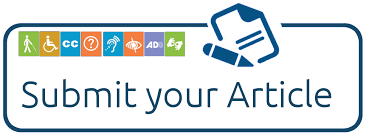Strategi Penerapan E-Bisnis dalam Optimalisasi Pemasaran Produk Pertanian: Studi Kasus pada UMKM Agribisnis
DOI:
https://doi.org/10.63200/jebmass.v2i6.160Keywords:
E-Business, Digital Marketing, Agribusiness, MSMEs, Agricultural Products, Marketing StrategyAbstract
The development of information technology has brought significant changes in marketing strategies, including in the agribusiness sector. This study aims to analyse the strategy of implementing e-business in optimising the marketing of agricultural products in agribusiness MSMEs. A qualitative approach is used with a case study method on several MSMEs in the agribusiness sector that have adopted digital platforms. The results show that the application of e-business, through the use of social media, marketplaces, and e-commerce websites, is able to increase market reach, marketing efficiency, and competitiveness of agricultural products. However, challenges such as farmers' digital literacy and limited technological infrastructure are still major obstacles. This research suggests increased digital training for MSME players and government support in providing adequate technological infrastructure. With proper implementation, e-business can be a strategic solution to overcome traditional marketing constraints in the agribusiness sector.
Downloads
References
Aina, R., & Ariyanti, M. (2024). Boosting Purchase Intentions with Emojis: (How Somethinc’s Firm-Generated Content On Social Media X Attracts Consumers). Journal of Management, Accounting, General Finance and International Economic Issues, 3(3 SE-Articles), 833–847. https://doi.org/10.55047/marginal.v3i3.1299
Anthony, R. N., Govindarajan, V., Hartmann, F. G. H., Kraus, K., & Nilsson, G. (2007). Management control systems (Vol. 12). McGraw-Hill Boston.
Ghozali, I. (2018). Aplikasi analisis multivariate dengan program IBM SPSS 25.
Hofacker, C. F., De Ruyter, K., Lurie, N. H., Manchanda, P., & Donaldson, J. (2016). Gamification and mobile marketing effectiveness. Journal of Interactive Marketing, 34(1), 25–36.
Hofstede, G. (2011). Dimensionalizing cultures: The Hofstede model in context. Online Readings in Psychology and Culture, 2(1), 8.
Kotler, P, & Keller, K. L. (2012). Marketing management (14th ed.). Pearson Education.
Kotler, Philip, & Keller, K. L. (2019). Manajemen Pemasaran (Erlangga (ed.)). Erlangga.
Laudon, K. C., & Traver, C. G. (2021). E-commerce 2020-2021: business, technology, society. Pearson.
Mangkunegara. (2013). Manajemen Sumber Daya Manusia Perusahaan. Remaja Rosdakarya.
Marina, A., Wahjono, S. I., & Suarni, A. (2018). Sistem informasi akuntansi: teori dan praktikal. UMSurabaya Publishing.
Nengah, I. G., & Diatmika, D. (2022). Penerapan Digital Economy Dalam Sektor Agribisnis. Majalah Ilmiah Untab, 19(2).
Rahmaniah, S. A. (2020). Tingkat Penerimaan E-Commerce Agribisnis oleh Ibu Rumah Tangga di Kelurahan Sumur Batu, Kecamatan Bantar Gebang, Kota Bekasi. Jurnal Perilaku Dan Strategi Bisnis, 8(1). https://doi.org/10.26486/jpsb.v8i1.998
Robbins, S. P., & Judge, A. T. A. (2019). Organizational Behavior. 18th Editi. New York City, NY. USA: Pearson.
Schein, E. H. (2010). Organizational culture and leadership (3rd Editio). John Wiley & Sons.
Sedarmayanti, H. (2018). Manajemen sumber daya manusia; reformasi birokrasi dan manajemen pegawai negeri sipil. Reflika Aditama.
Sugiyono, D. (2013). Metode penelitian pendidikan pendekatan kuantitatif, kualitatif dan R&D.
Tjiptono, F., & Diana, A. (2016). Pemasaran : esensi & aplikasi. Yogyakarta: Andi Offset.
Downloads
Published
How to Cite
Issue
Section
License
Copyright (c) 2024 Ari Susanto*

This work is licensed under a Creative Commons Attribution 4.0 International License.











